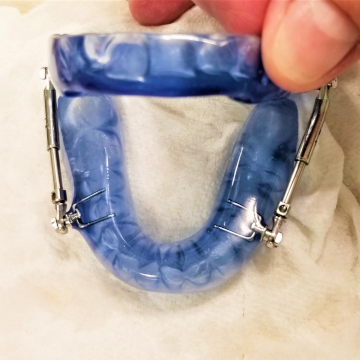 Santa Cruz, Scotts Valley CA
Santa Cruz, Scotts Valley CA
While it may seem surprising to make the jump from a tongue-tie to constipation and reflux, it should make more sense when we remember that the mouth is the very beginning of the human gastrointestinal (GI) tract. Tongue-tie is a condition that is present at birth that restricts the tongue’s range of motion. This occurs when the lingual frenulum — the band of tissue connecting the tongue to the floor of the mouth — is too short, tight or thick. Perhaps you’ve heard of a tongue-tie for its impact on breastfeeding and speech development in children. Our family dentist in Santa Cruz at Ebrahimian Integrative Dentistry specializes in tongue-ties and their release. Today, we’re sharing recent scientific developments that link tongue-tie to GI issues such as constipation and reflux.
The link to constipation
Constipation in children with tongue-tie may seem unrelated at first glance. However, tongue-tie leads to difficulty with breastfeeding, which can consequently lead to poor feeding patterns and inadequate nutrition. Inefficient swallowing and chewing can cause food to be ingested in larger, improperly-broken-down pieces, which makes digestion more challenging and can lead to constipation.
The link to reflux
Reflux, or gastroesophageal reflux disease (GERD), is another condition linked to tongue-tie. Proper tongue movement creates an effective seal in the mouth during swallowing. Without this seal, air can be swallowed along with food, leading to increased gas and pressure in the stomach. This pressure can cause stomach contents to flow back into the esophagus, resulting in reflux. Improper tongue function can also disrupt the natural swallowing mechanism, contributing to more frequent and severe reflux episodes.
What are symptoms of tongue-tie?
Recognizing the signs of tongue-tie early is the key to addressing both oral and gastrointestinal health issues.
Infants obviously can’t communicate with us, so it’s important for parents to look for the following body-language cues to determine if a baby may have tethered oral tissue:
- Frequent hunger
- Gasping for air while nursing
- Drooling, gumming or chewing while nursing
- Gassiness or hiccups
- Colic
Breastfeeding moms can also show signs that their baby possibly has a tongue-tie, including:
- Nipple damage
- Breasts that are consistently still full of milk after nursing
- Pain in the breasts or mastitis
- Lack of sleep because Baby is always fussy
- Low milk supply
How is tongue-tie diagnosed and treated?
A thorough examination by our family dentist in Scotts Valley can confirm a tongue-tie diagnosis. We will often recommend a simple procedure called a frenectomy or frenotomy, which releases the tongue by cutting the restrictive frenulum. This procedure can often be performed quickly and with minimal discomfort, especially in infants. We may also recommend myofunctional therapy (physical therapy of the mouth and tongue) and possible therapy with a speech or feeding specialist to ensure proper tongue function and alleviate any related issues.
TONGUE-TIE RELEASE IN SCOTTS VALLEY, SANTA CRUZ, AND LOS GATOS, CALIFORNIA
The impact of a tongue-tie extends beyond the mouth, affecting various aspects of health and development, including gastrointestinal function. By understanding the link between tongue-tie, constipation and reflux, we can take proactive steps to diagnose and treat the condition early, which not only improves feeding and speech but also enhances overall digestive health, contributing to a better quality of life for affected children. If you believe your infant or child may have a tongue-tie, call Ebrahimian Integrative Dentistry at (831) 824-5111, or reach out to us online today to schedule an appointment.


